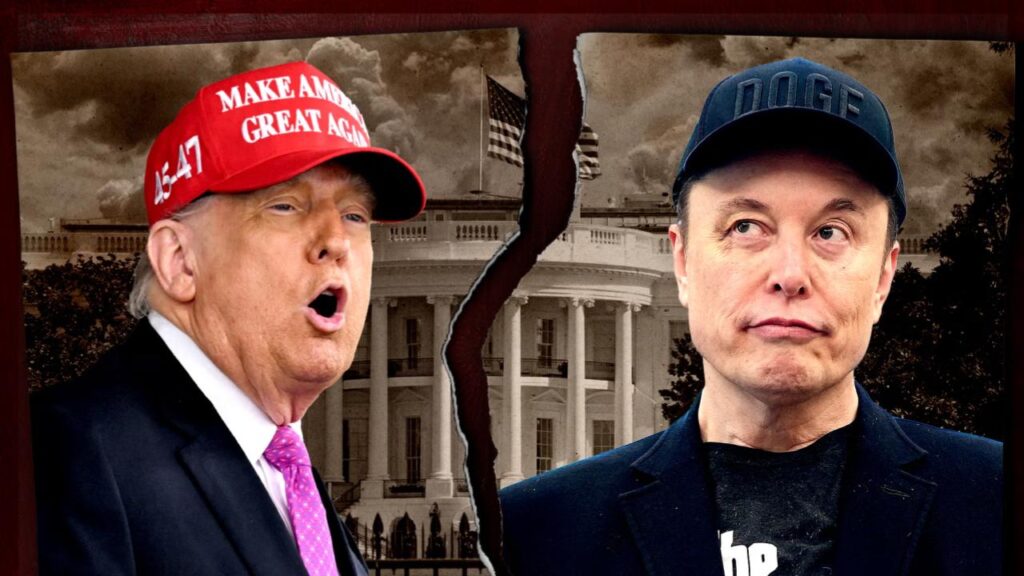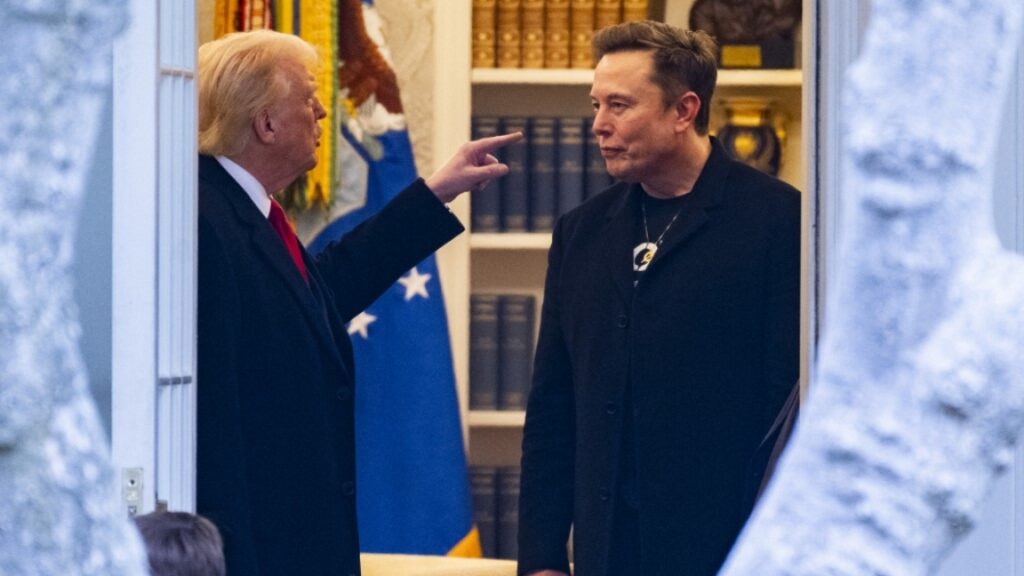In a political drama that feels ripped from a dystopian screenplay, President Donald Trump and tech mogul Elon Musk have ignited a fiery public feud. Once allies in reshaping America’s political and technological landscapes, the two now exchange barbs over social media, legislation, and personal grievances. This unexpected rift not only captivates the public but also sends shockwaves through markets and political circles alike.

Trump vs. Musk: Billionaire Titans Clash
| Takeaway | Stat |
|---|---|
| Tesla’s stock plummeted | 14% drop, erasing $152 billion in value |
| Musk’s political donations | Over $250 million to Trump’s 2024 campaign |
| Proposed deficit increase from Trump’s bill | $3 trillion over the next decade |
The Trump-Musk feud underscores the volatile intersection of politics, business, and personal relationships in the digital age. As both figures wield significant influence, their public clash serves as a cautionary tale of how alliances can quickly unravel, with far-reaching implications for governance, markets, and public discourse.
The Genesis of the Feud
The discord began with Musk’s vehement criticism of Trump’s “One Big Beautiful Bill Act,” a sweeping tax and spending proposal. Musk labeled it a “disgusting abomination,” arguing it would balloon the national deficit by $3 trillion while slashing essential programs, including those supporting electric vehicles—a sector integral to Musk’s enterprises.
Trump, feeling betrayed by a former confidant, responded with disappointment and threats to revoke federal contracts with Musk’s companies. “Elon and I had a great relationship. I don’t know if we will anymore,” Trump remarked during an Oval Office meeting.
Social Media Warfare
The conflict quickly escalated online. Musk took to his platform, X (formerly Twitter), to refute Trump’s claims, stating, “False, this bill was never shown to me even once and was passed in the dead of night.” He further accused Trump of ingratitude, asserting that without his support, Trump would have lost the 2024 election.
In a particularly incendiary move, Musk suggested that Trump was implicated in the Jeffrey Epstein files, a claim that intensified the feud and drew widespread attention.

Economic Repercussions
The public spat had immediate financial consequences. Tesla’s stock experienced a significant downturn, dropping by 14% and wiping out $152 billion in market value. This decline also impacted Musk’s personal wealth, reducing his net worth by approximately $8.73 billion.
Trump’s media company, Trump Media & Technology Group, wasn’t spared either, with shares falling 8% amidst the turmoil.
Political Fallout
Musk’s departure from his role in the Department of Government Efficiency (DOGE) marked a turning point. Once a key advisor, Musk’s exit signaled a shift in their alliance. He has since floated the idea of forming a new political party to represent the “80% in the middle,” indicating a potential move away from traditional party lines.
This schism has left Silicon Valley and conservative circles divided, with some tech leaders cautiously backing Musk’s economic concerns, while others remain aligned with Trump.
Public and Personal Entanglements
Adding a personal dimension to the feud, influencer Ashley St. Clair, mother of Musk’s 14th child, offered Trump “breakup advice,” highlighting the personal nature of the fallout. Musk’s paternity of St. Clair’s child had been previously disputed but was confirmed by a Labcorp report.






